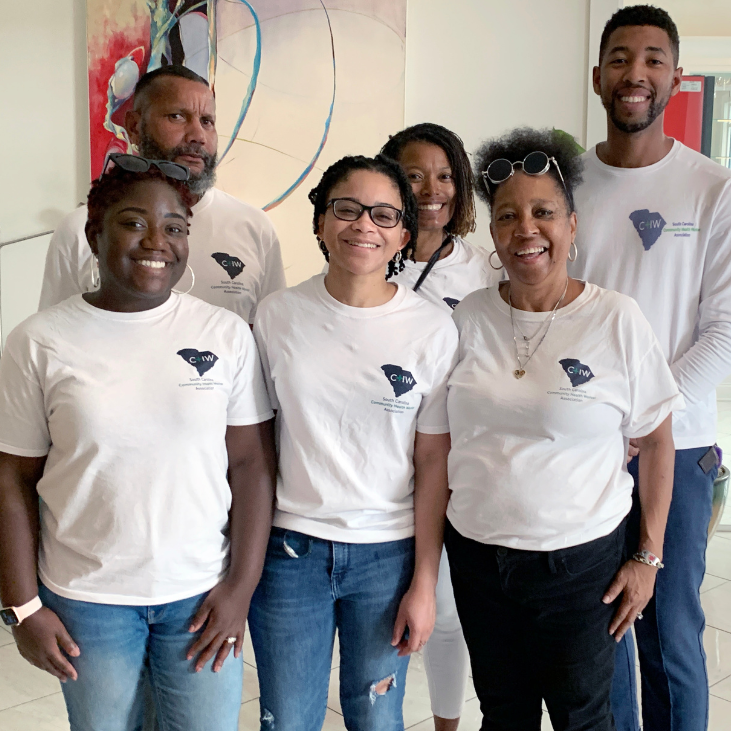Andrea Johnson Works to Identify and Expand Recognition of Community Health Workers in South Carolina

Andrea Johnson was pursuing a Master’s in Public Health with a concentration in Epidemiology at the University of Alabama at Birmingham (UAB) School of Public Health when she served as a Region IV PHTC Pathways to Practice Scholar in the summer of 2022. She chose to intern with the South Carolina Community Health Worker Association (SCCHWA), which consists of Community Health Workers (CHWs) and supporters who are working to build a “healthier South Carolina through the promotion of education, networking and advocacy for the community health worker profession.” Currently, SCCHWA is working to expand its database of CHWs to include workers in smaller and/or rural clinics.
During her field placement, Andrea assisted with the Community Health Worker Identification Expansion Project, which aims to locate new CHWs who work at community-based organizations, such as churches or small health clinics, or those with a similar job title under the umbrella of community health workers. Because these CHWs are not normally affiliated with major hospitals or agencies, they often struggle to provide quality care to residents due to a lack of resources such as funding, education, or staff.
One of Andrea’s projects included designing a questionnaire to assess where CHWs are located in rural areas of South Carolina and to identify the populations they serve. Once identified, these CHWs and their locations are added to the SCCHWA database. Using metrics gleaned from the questionnaire, Andrea also created informational flyers and graphics highlighting the successes of CHWs throughout the state and their impact on the health of the communities they serve.
According to Andrea, a major takeaway she gained from her field placement was realizing the importance of CHWs on community and wellbeing.
“I learned from both the data and my own observations that CHWs are not only effective at reducing healthcare costs and improving health outcomes, they are also effective at supporting community members and building trust in medical professionals and the healthcare system, especially in communities that the medical system has historically undermined. From the interviews we conducted with some CHWs, it became clear that they connect on a very intimate level with their clients and bridge gaps regular doctors and nurses cannot. While CHWs’ impact on health is still being quantified, they make a real and tangible difference in individuals’ health and their perception of the healthcare system.
During my internship, I gained exposure to the field of community health workers and insight into the work CHWs do for individuals and their communities. This experience has solidified my desire to work in underserved minority communities, specifically focusing on increasing access to social services. After graduation, I want to assist in promoting the community health worker profession and potentially do the work myself to provide affordable and accessible care to residents of underserved communities.”
